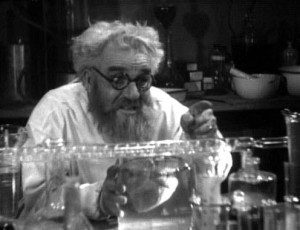 Scientists sometimes succumb to logical fallacies.
Scientists sometimes succumb to logical fallacies.
A Norwegian scientist has written about three of them that often turn up in scientific research:
(1) affirming the consequent
(2) false analogy
(3) confirmation bias
From Ross Pomeroy, Common Logical Fallacies Committed by Scientists | RealClearScience:
In an effort to clamp down on the problem of poor logic in science, Espen A. Sjoberg, a PhD candidate at Oslo and Akershus University College, recently outlined a couple of the more common logical fallacies that scientists fall victim to. His helpful article is published in the journal Behavioral and Brain Functions.
One of the most prominent is the fallacy of “affirming the consequent,” Sjoberg writes. It’s the notion of seeking evidence to confirm hypotheses rather than searching for evidence to disprove them. The distinction seems subtle, but it can easily translate to false findings. . . .
A second fallacy that arises is “false analogy,” Sjoberg asserts. This is most prevalent in animal research. Essentially, scientists assume that because animals share many characteristics with humans, we can also assume they share other characteristics. For years, psychologists ran mice through mazes to glean insights into human psychology. That research paradigm is no longer utilized, as psychologists finally realized that just because mice and humans are both mammals with highly developed brains that share 97.5 percent of working DNA, that does not mean that mice think like we do. The same fallacious thinking plagues animal research into human diseases. Fewer than eight percent of positive cancer findings translate to humans. Less than one percent of stroke findings do.
Other errors in thinking also pervade modern science. Confirmation bias causes researchers to favor data that supports their hypotheses. Feeding into this is the notion of “sunk cost,” essentially the fear of wasted time and effort. Some popular psychology theories persist on publication bias, the tendency to publish positive findings rather than null results.
[Keep reading. . .]
The original article is here.
Photo: Dr. Meierschultz, from the movie Maniac (1934) by director: Dwain Esper, cinematographer: William C. Thompson, studio: Roadshow Attractions (http://losteyeways.splinder.com/tag/libri) [Public domain], via Wikimedia Commons
 Scientists sometimes succumb to logical fallacies.
Scientists sometimes succumb to logical fallacies.













